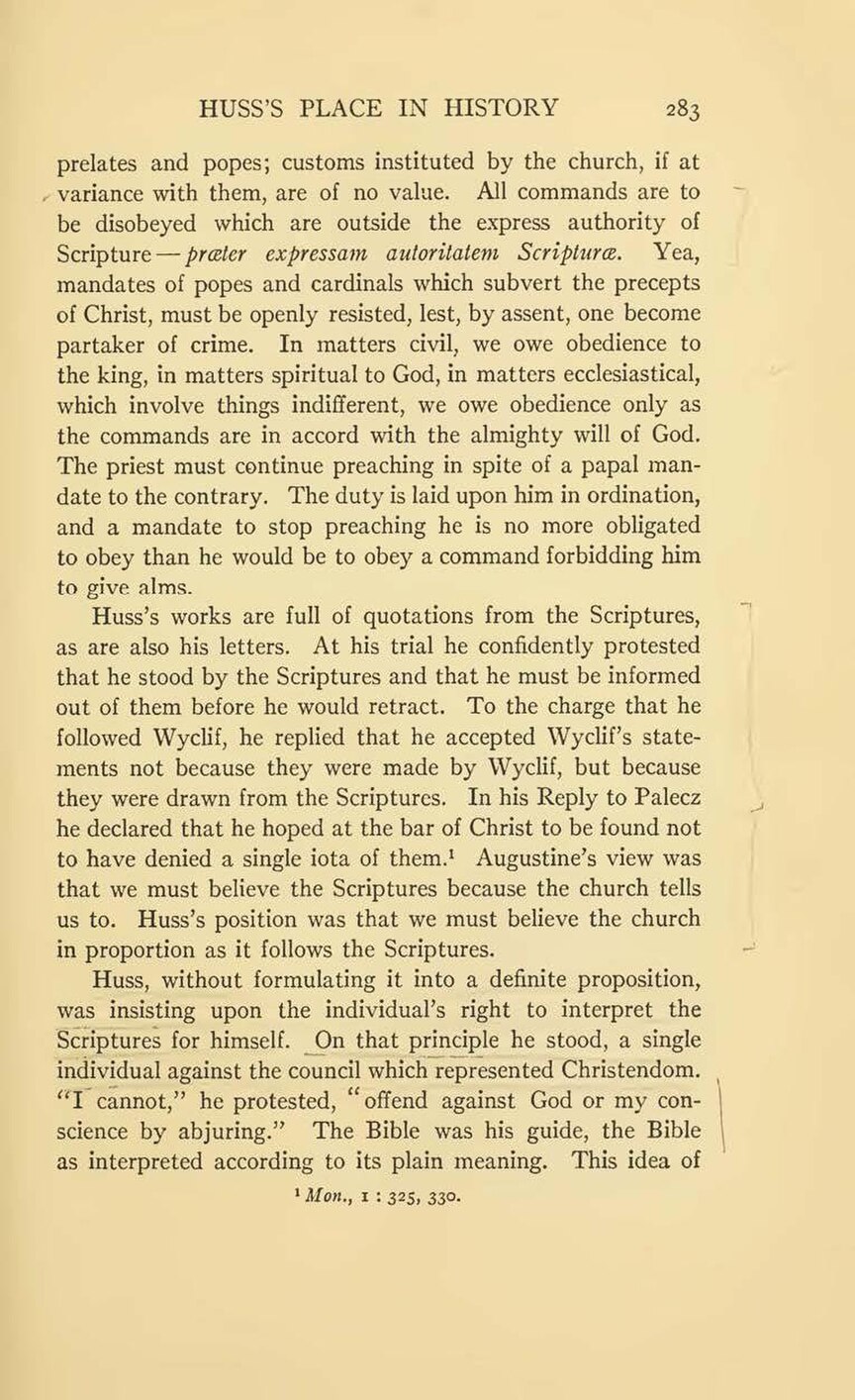prelates and popes; customs instituted by the church, if at variance with them, are of no value. All commands are to be disobeyed which are outside the express authority of Scripture—præter expressam autoritatem Scripturæ. Yea, mandates of popes and cardinals which subvert the precepts of Christ, must be openly resisted, lest, by assent, one become partaker of crime. In matters civil, we owe obedience to the king, in matters spiritual to God, in matters ecclesiastical, which involve things indifferent, we owe obedience only as the commands are in accord with the almighty will of God. The priest must continue preaching in spite of a papal mandate to the contrary. The duty is laid upon him in ordination, and a mandate to stop preaching he is no more obligated to obey than he would be to obey a command forbidding him to give alms.
Huss’s works are full of quotations from the Scriptures, as are also his letters. At his trial he confidently protested that he stood by the Scriptures and that he must be informed out of them before he would retract. To the charge that he followed Wyclif, he replied that he accepted Wyclif’s statements not because they were made by Wyclif, but because they were drawn from the Scriptures. In his Reply to Palecz he declared that he hoped at the bar of Christ to be found not to have denied a single iota of them.[1] Augustine’s view was that we must believe the Scriptures because the church tells us to. Huss’s position was that we must believe the church in proportion as it follows the Scriptures.
Huss, without formulating it into a definite proposition, was insisting upon the individual’s right to interpret the Scriptures for himself. On that principle he stood, a single individual against the council which represented Christendom. “I cannot,” he protested, “offend against God or my conscience by abjuring.” The Bible was his guide, the Bible as interpreted according to its plain meaning. This idea of
- ↑ Mon., 1: 325, 330.
